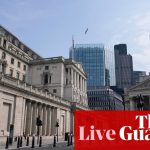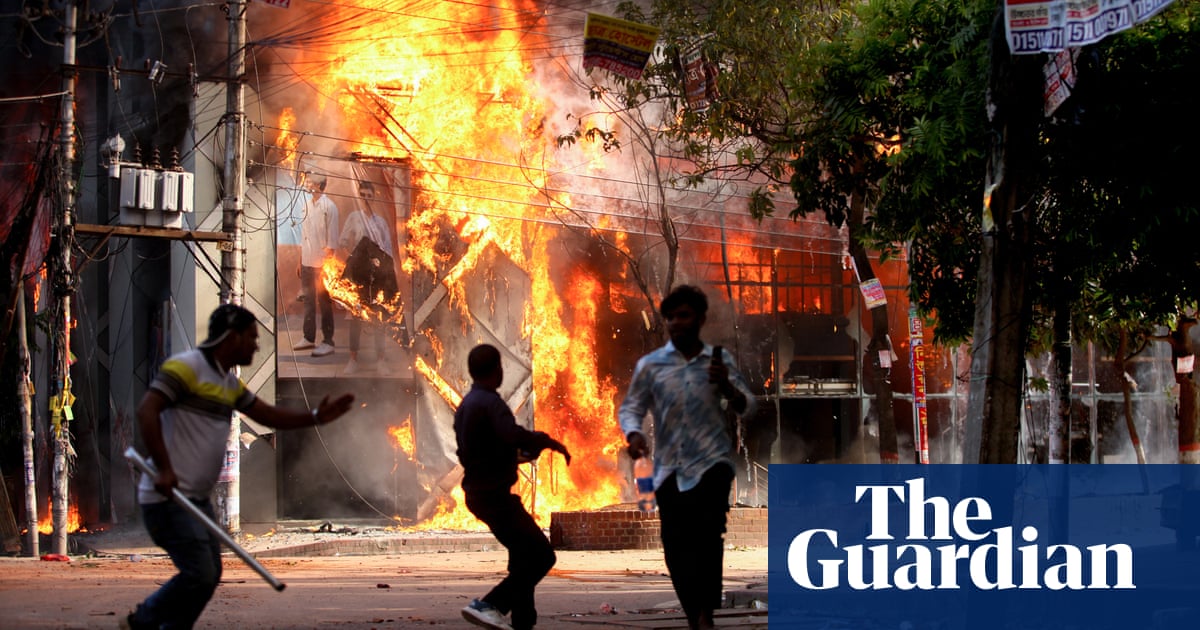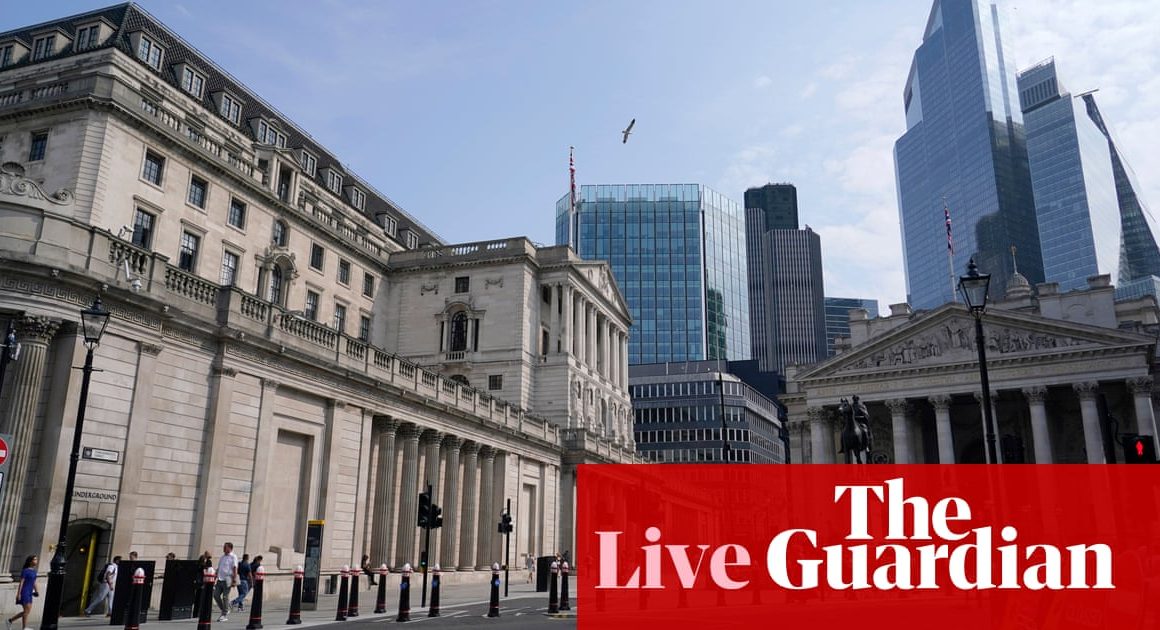Protesting students in Bangladesh have called for a march to the capital Dhaka in defiance of a nationwide curfew on Monday to press prime minister Sheikh Hasina to resign, a day after deadly clashes in the South Asian country killed nearly 100 people.
The country has been engulfed by protests and violence that began last month after student groups demanded the scrapping of a controversial quota system in government jobs.
“The government has killed many students. The time has come for the final answer,” protest coordinator Asif Mahmud said in a statement on Facebook late on Sunday.
“Everyone will come to Dhaka especially from the surrounding districts. Come to Dhaka and take a position on the streets.”
At least 91 people were killed and hundreds injured on Sunday according to Reuters, in a wave of violence across the country, as police fired teargas and rubber bullets to disperse tens of thousands of protesters.
Demonstrators in Dhaka, surrounded by a tightly packed and cheering crowd, waved a Bangladeshi flag on top of an armoured car as soldiers watched, according to videos on social media on Sunday verified by Agence France-Presse.
In several cases, soldiers and police did not intervene to stem the protests, unlike during the past month of rallies that repeatedly ended in deadly crackdowns, AFP reported.
Sunday’s death toll, which included at least 14 policemen, was the highest for a single day from any protests in Bangladesh’s recent history, surpassing the 67 deaths reported on 19 July when students took to the streets against the quotas.
Starting Sunday evening, a nationwide curfew was imposed, the railways suspended services and the country’s huge garments industry closed.
The government declared the indefinite nationwide curfew starting at 6pm (1200 GMT) on Sunday and also announced a three-day general holiday starting from Monday.
The military urged everyone to obey the curfew rules. “The Bangladesh army will perform its promised duty in line with the Bangladesh constitution and existing laws of the country,” it said in a statement late on Sunday.
“In this regard the people are requested to abide by the curfew as well as give full cooperation to this end,” it said.
The unrest is the biggest test of Hasina’s 20-year regime after she won a fourth straight term in elections that were boycotted by the main opposition Bangladesh Nationalist Party earlier this year.
Demonstrations began over the reintroduction of a quota scheme that reserved more than half of all government jobs for certain groups.
Critics of Hasina, along with human rights groups, have accused her government of using excessive force against protesters, a charge she and her ministers deny.
For the second time during the recent protests, the government has shut down high-speed internet services, mobile operators said. Social media platforms Facebook and WhatsApp were not available, even via broadband connections.
In July, at least 150 people were killed and thousands injured in violence after student groups began protesting.
The protests paused after the supreme court scrapped most quotas, but students returned to the streets in sporadic protests last week, demanding justice for the families of those killed and Hasina’s resignation.
Hasina has said that “those who are carrying out violence are not students but terrorists who are out to destabilise the nation”.
With Reuters and Agence France-Presse










